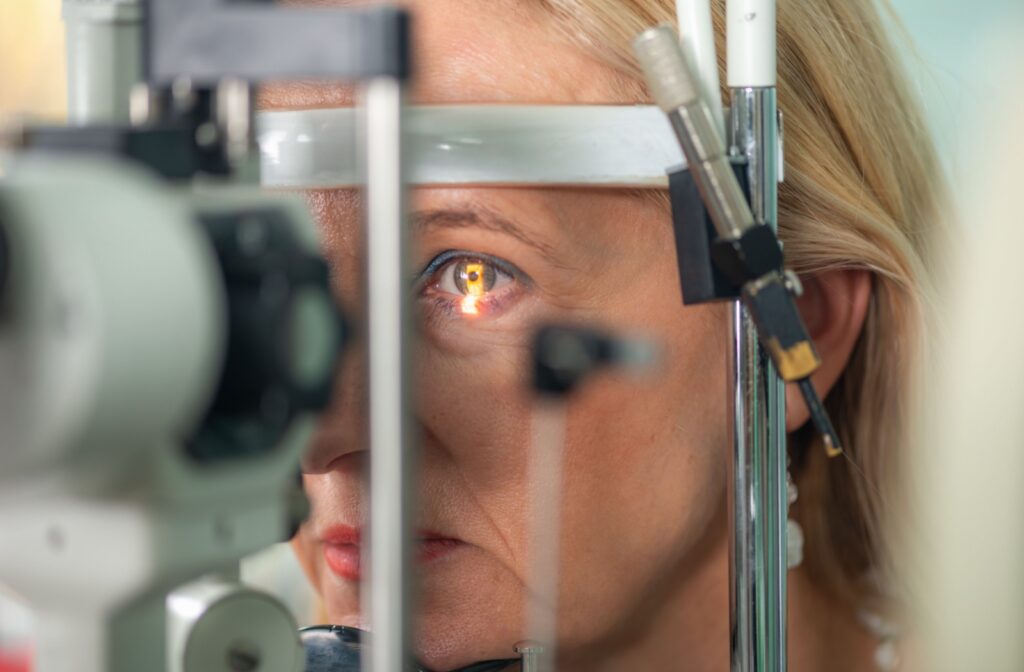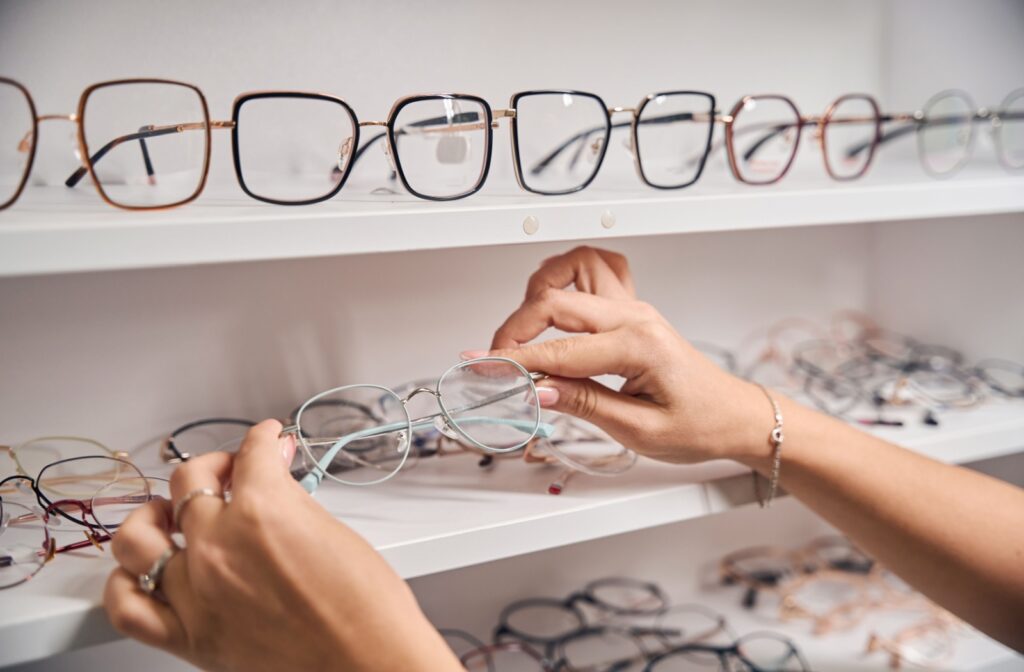Changes in your vision can be concerning, especially when they start to affect your daily life. Reading, driving, or even seeing a loved one’s face can become difficult. We believe in a health-based approach to vision care, and we want you to know there are solutions that can bring your world back into focus.
It’s a common question we hear, and the answer offers a lot of hope. While eyeglasses cannot correct or cure macular degeneration, they can be powerful tools to help you maximize your remaining vision and improve your daily quality of life. The right pair of glasses, often as part of a plan including powerful low vision aids, can make a significant difference in how you see the world.
What Is Macular Degeneration?
Macular degeneration, formally known as age-related macular degeneration (AMD), is an eye condition that affects your central vision. It makes it harder to see things directly in front of you, which can interfere with activities like reading, driving, or recognizing faces. Your peripheral vision usually remains unaffected.
Common Signs of Macular Degeneration
If you notice any of the following symptoms, scheduling an exam is an important step toward eye disease diagnosis and management.
- A blurry or distorted area in your central vision
- Straight lines that look wavy or crooked
- Reduced contrast sensitivity
- Difficulty seeing in low light
How Eyeglasses Can Support Your Vision
While glasses cannot correct the underlying condition, they can help you make the most of your remaining sight. The right eyewear can enhance clarity, reduce bothersome glare, and magnify text to make daily tasks more manageable. An updated prescription, determined during regular adult and senior eye exams, is a key first step to address any refractive errors you may have.
From there, we can explore specific types of lenses, tints, and coatings that can provide additional support. Think of these glasses as customized tools designed for your unique visual needs. They are one part of broader low vision rehabilitation strategies that help your eyes work more efficiently with the vision you have.

Types of Lenses and Features for Macular Degeneration
Several types of lenses and special features can be added to your glasses. These additions can help with the visual challenges that come with macular degeneration. They focus on improving contrast, reducing glare, and magnifying what you want to see.
Magnification Lenses
Lenses with high-powered magnification can make it easier to read small print or see fine details up close. Options like bifocals or strong reading glasses can be very helpful for hobbies or reading. These lenses do require you to hold objects closer to your eyes to find the focal point.
Telescopic Glasses
For distance vision, small telescopes can be mounted on your eyeglasses. These are useful for activities such as watching television or seeing signs from a distance. They allow you to see objects that are farther away with greater clarity.
Specialized Lens Tints and Coatings
- Yellow-tinted lenses: These can improve your ability to see contrasts between different colors. This may help with depth perception on stairs or curbs, making navigation easier.
- Anti-reflective coating: An anti-reflective coating reduces glare from bright lights or reflective surfaces like water. This can improve visual comfort and clarity, especially when driving at night.
- UV protection: Sunglasses that block 100% of UVA and UVB rays are important. They help protect your retina from further sun-related harm.
Polycarbonate Lenses
These lenses are more durable and impact-resistant than standard plastic lenses. They offer an added layer of physical protection for your eyes. This can be beneficial for anyone with compromised vision, especially during physical activities.
Beyond Eyeglasses: Other Helpful Vision Aids
In addition to glasses, other helpful low-vision aids can help you maintain your independence. These tools can work alongside your eyewear to help you continue your favorite activities. Many people find that a combination of aids works well.
Handheld and Desktop Magnifiers
These tools come in various strengths and sizes, and many are illuminated. They can help with quick tasks like reading a prescription bottle, a menu, or a price tag. Their portability makes them a convenient option for use on the go.
Electronic and Video Magnifiers
Also known as CCTVs, these devices use a camera to project a highly magnified image onto a screen. You can often adjust the brightness, contrast, and color to suit your needs. They can make reading books, looking at photos, or writing much easier.
Lifestyle Habits and Your Eye Health
Some daily habits can influence the health of your eyes. A balanced diet full of leafy greens and regular physical activity can support your body’s overall wellness. It’s also important to avoid habits that can harm your eyes. For example, the link between smoking and vision loss is well-established, making quitting a powerful step for your health.
Let’s Find the Right Solution Together
With so many options available, getting personalized advice is a great next step. A professional can help you navigate the different types of glasses, lenses, and vision aids to find a solution tailored to your needs. A comprehensive examination is key to identifying your specific challenges and the tools that can help you live more comfortably.
Our Total Vision Riverside team is here to help you explore your options. As your local eye doctor in Riverside, we take the time to understand your lifestyle and vision goals. Let’s work together to find a solution that supports your independence and daily activities. Book an appointment with us today.



